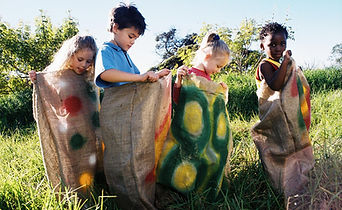
Play Therapy
Play therapy is to children what counseling is to adults. Play therapy utilizes play, children’s natural medium of expression, to help them express their feelings more easily through toys instead of words. When we, as adults, encounter a tough problem, we often think about it for a while, look at it from different angles, determine our options, and sometimes talk about it with someone we trust. When things go wrong for us, we might mentally review what happened and think about how we
might handle the situation in the future. During play therapy, children do these same things using their imaginations.

What Happens in Play Therapy?
Through the play therapy process children create play that resembles
the emotional experiences they are struggling with internally. These
experiences often cannot be expressed verbally. Children will select
specific toys to include in their play and use those toys to recreate
issues that represent emotional conflicts important to the child. The
child’s play evolves until the child gains a sense of understanding and
comfort over the situation resulting in gains in confidence,
empowerment, empathy, and self-esteem.
How Long Will Play Therapy Take?
Play therapy is a process and the amount of time it takes depends on
several factors in the child’s past and present experiences. The two
most important factors are the developmental stage of the child and
the age of the child at the onset of the issue. Usually the more recent
the events, the shorter the therapy length. The further back in the
child’s development that the onset of the issue occurred, the longer
the play process will take. Other factors influencing the length of time
therapy will take include the amount of trauma in the child’s history,
the willingness of the family to make changes, and consistency of
therapy.
Is Play Different in Play Therapy than When My Child Plays at
Home?
The basic function of play remains the same in both situations. Play to
children is a natural way to rehearse for life’s interactions. Play serves
three primary purposes. The first two are for cognitive and motor
development. The third is for emotional resolution. When facilitated
by a play therapist, the play becomes focused on the emotional
component. This leads to understanding, resolution, and re
establishment of balance in the child’s sense of well-being.
How Will I Be Involved as a Parent?
Parent involvement is an essential component of the play therapy
process. Parents will be asked to meet/talk with the therapist on a
regular basis. These discussions will not be held in front of your child
before or after play therapy sessions but at a separate time. One of
the critical components of the play therapy process is the child’s
ability to trust the therapist and feel safe to express whatever they
need to in the playroom. As children move through the process they
will often share with parents their experience, ask questions about
past events, and become curious about the way their world works. As a
parent, you can support your child by listening attentively and
validating their experience without judgment or defensiveness.
Parents will be asked to contribute to their child’s progress by
observing and sharing with the therapist changes in their child’s
behavior and by following recommendations of the therapist, which
may include activities to support the therapy process.